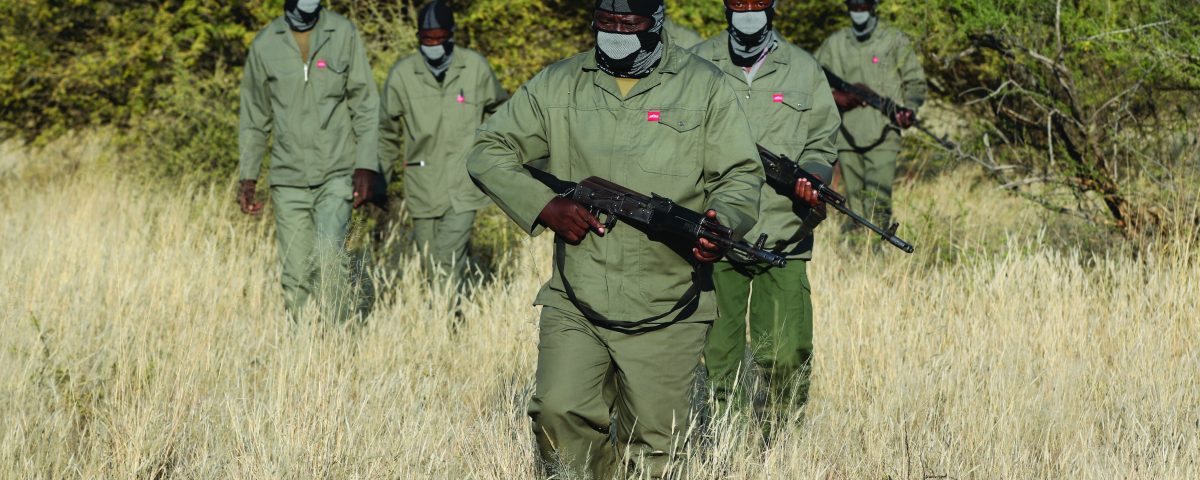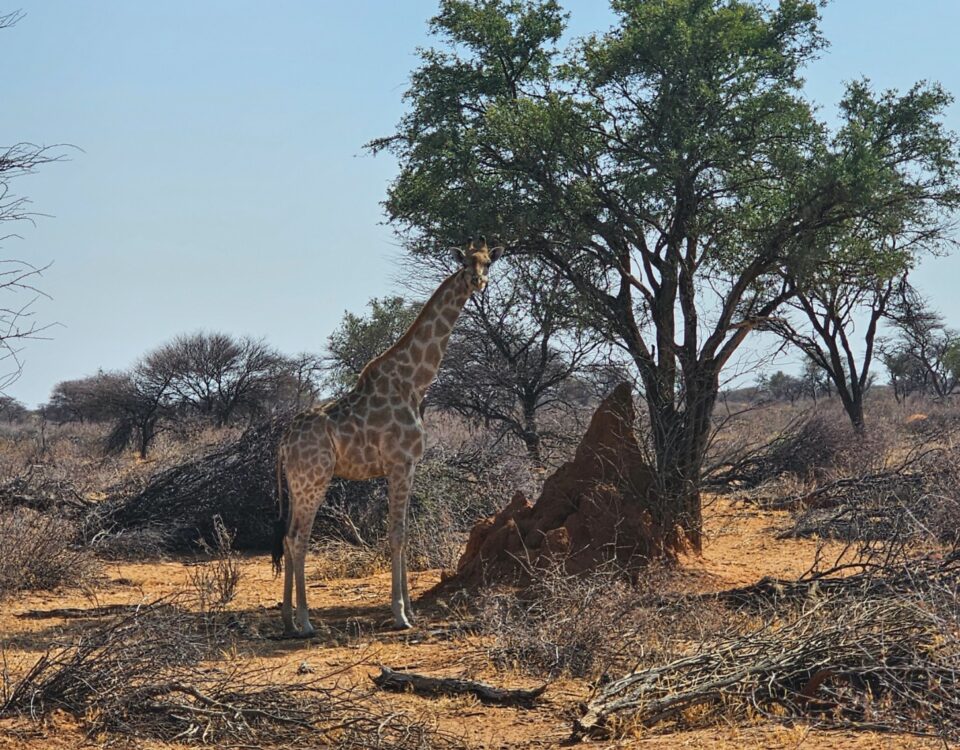
Rhodesian Ridgeback: The Soulmate of Africa
January 9, 2019
Are We Making The Most Of Our Wildlife Products?
January 10, 2019The potential crime scene is secured and the police and/or the Ministry of Environment and Tourism have to be informed. In a session convened by the expert trainers from African Anti-Poaching Services, the group’s performance is analysed, after which the trainees return to the farmstead that houses the Eagle Rock Academy east of Windhoek. There, the second group is ready to show what they have learnt in the last two weeks.
In June and July 2017 two groups of selected game guards from various communal conservancies in the Zambezi and Kavango regions in the northeastern part of Namibia trained at the Eagle Rock Academy. The men and women were eager to learn more and improve their skills to help their conservancy and its members to prevent poaching. “We need to protect our animals from being poached so that our children can also benefit from the wildlife”, was a sentiment expressed by most of the participants in the course. “We need to stop poaching and bring the perpetrators to court. Those people are criminals who destroy our livelihood”, the trainees emphasised.
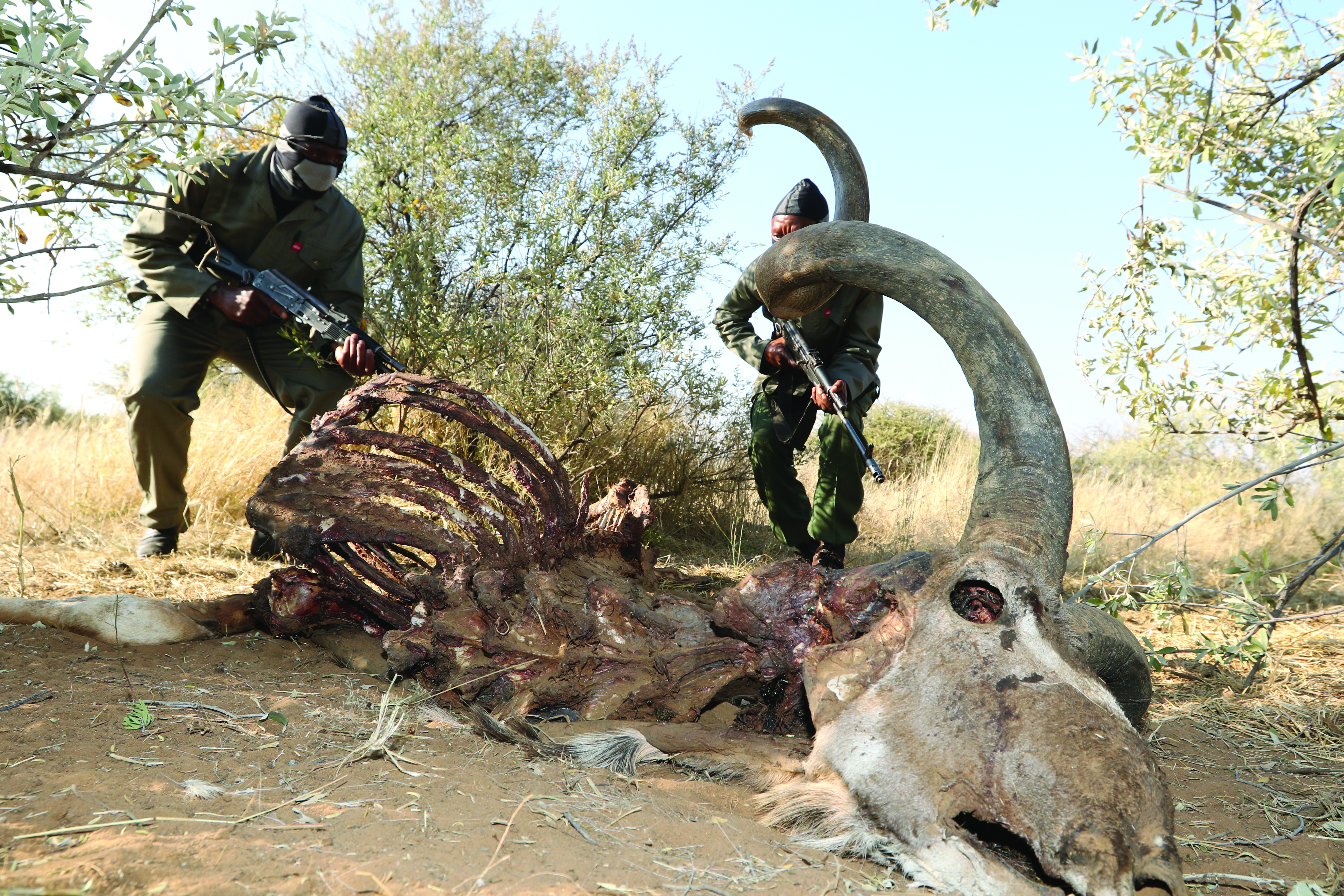
Practical training in the bush is part of the two-week course. Here the participants can show what they have learnt.
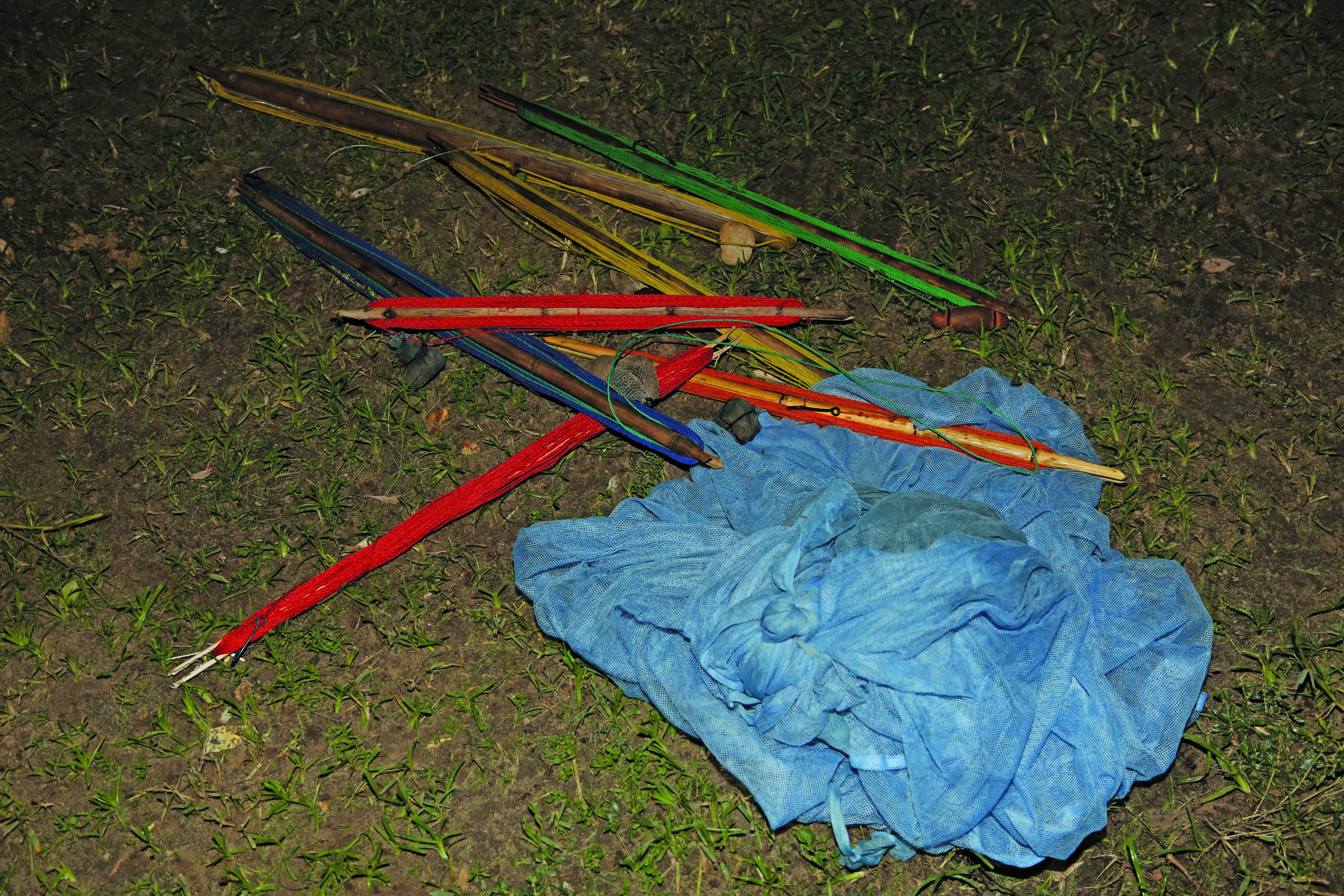
Illegal fishing equipment confiscated by fish and game guards together with Namibian and Zambian police and officials from both countries’ Ministry of Fisheries. It is an example of the close working relationship between the authorities and the communal game and fish guards.
Some of the game guards who come from communal conservancies where NAPHA members hold hunting concessions, also act as fish guards to prevent fish poaching, mostly by illegal fishermen from neighbouring countries. “These people put out their nets and baits at sunset or in the cover of darkness on the Namibian side of the river. They use nets which are not allowed in our country. Before sunrise, they collect the nets and the catch and return across the border. We try to catch these people and confiscate their nets and long lines”, the fish and game guards said.
The two anti-poaching courses, held for two groups of twelve people each at the end of June and beginning of July this year, were the first courses of their kind for game guards from communal conservancies. The training is sponsored by the HUAP Trust (Hunters United Against Poaching) and provided by the Eagle Rock Academy and African Anti-Poaching Services. This company has also trained staff of the Ministry of Environment and Tourism and members of the Save the Rhino Trust. Each of the game guards already came with a wide range of skills, and the theoretical and practical training they received in the 14-day course was to unify those skills and to teach new methods of operating in the field with modern technology. The main aim of the training is to prevent poaching and not to catch poachers after they have killed precious animals. Part of the training is to preserve a scene of a crime since it is impossible to prevent all poaching. By becoming experts in gathering as much evidence as possible, the game guards help to apprehend the culprits and have them prosecuted.
Map reading, working with a GPS, gathering information, the safe handling of firearms, organising patrols and ways to patrol an area, methods to man observation posts and first aid are some of the subjects which were taught during the basic course. The instructors stressed that it is very important for the anti-poaching members to know how to engage with the local community and with tourists they might encounter during patrols. Therefore the laws of the country are an essential aspect of the training of communal game guards. The trainees must know which animals are protected, what the rights of suspects are and what type of action they (the game guards) can take within the framework of the law. More courses are to follow, some to train more game guards, others to enhance the leadership skills of some of those participants who completed the basic courses. Lastly, there will be follow-up courses for trained game guards to acquire specialised knowledge.
The HUAP Trust contributes to conservation in Namibia by financing and organising these courses that equip game guards with essential skills.
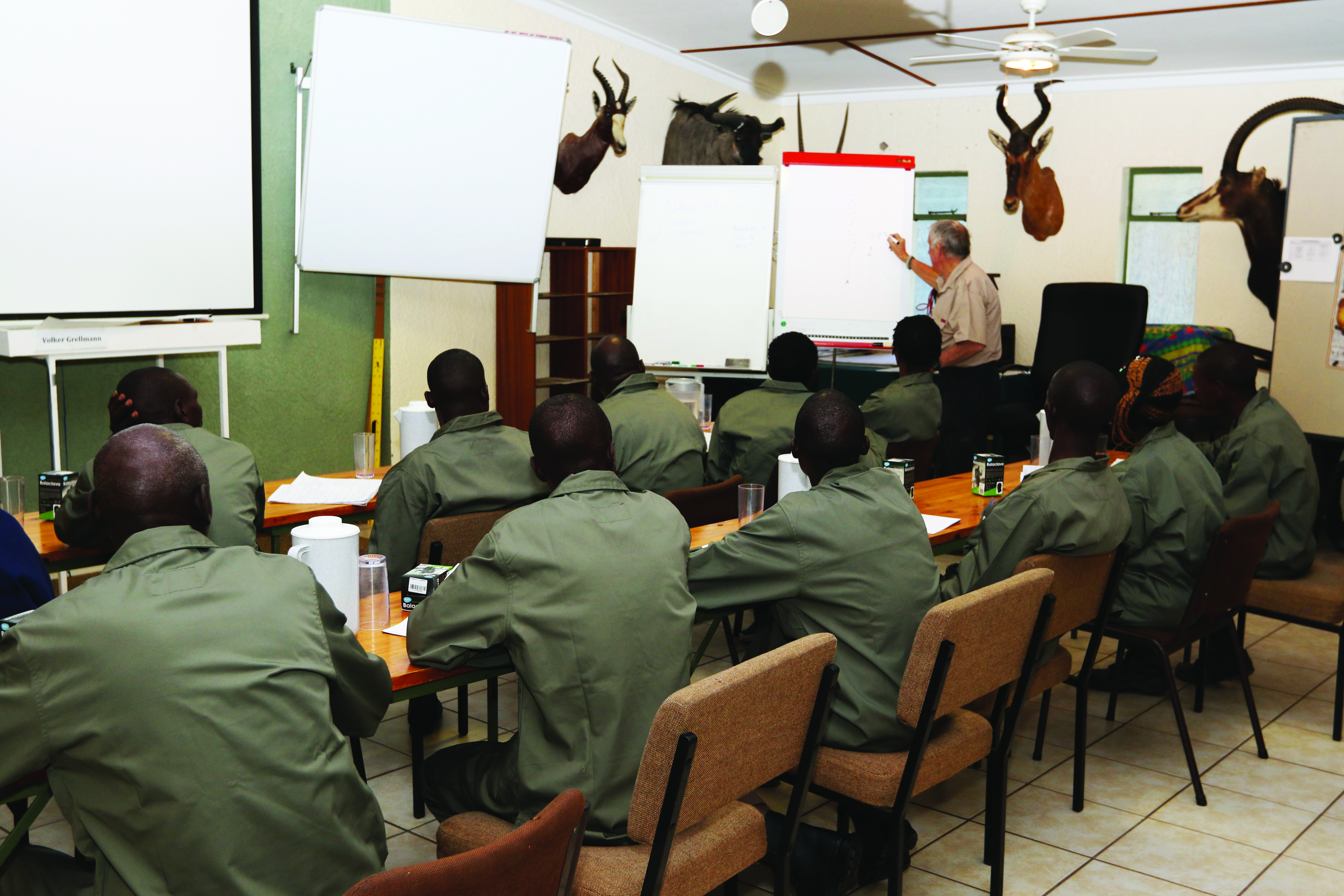
Game guards from various communal conservancies of the northeast of Namibia in the lecture room of the Eagle Rock Academy near Windhoek.
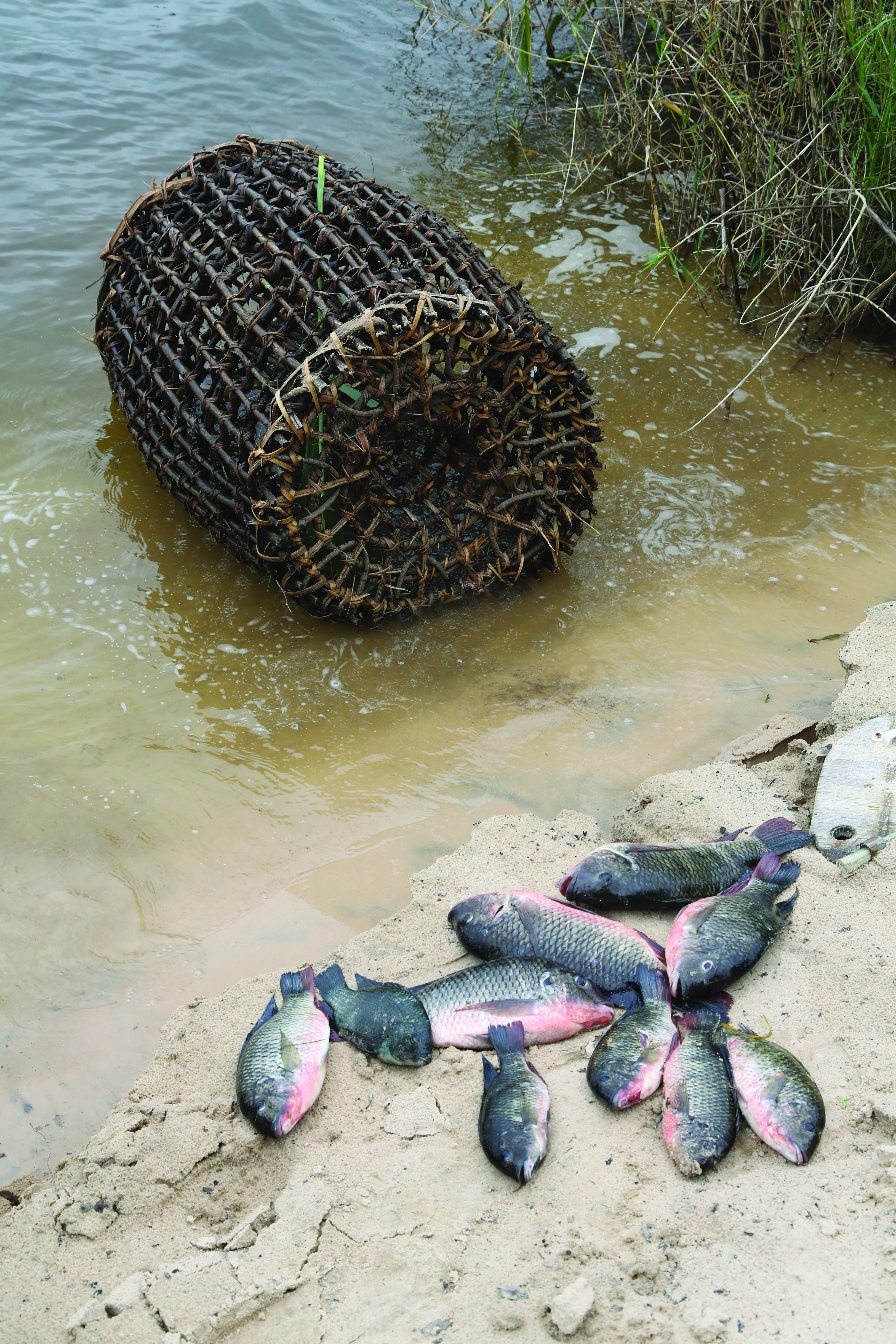
Game and fish guards of a communal conservancy in the Zambezi Region confiscated this traditional fish trap and the fish. Zambians had put out the trap on the Namibian side of the river.The culprits jumped into the river and swam to the Zambian side before they could be arrested.The fishing took place in the closed season.
The poaching of rhinos and elephants, but also other animals like the pangolin, and the smuggling of the products of these protected species has become a problem in Namibia which is on the rise. Namibia has engaged the police and defence force to cope with it. The officials benefit from the trained game guards because these men and women know their area, their animals and their people. With their new skills, they can be even more effective and support the efforts of the Ministry of Environment and Tourism as well as the work of the police.
Renewable natural resources must be preserved for the sake of biodiversity, the communities and Namibia at large. Sustainable utilisation of renewable natural resources benefits thousands of Namibians, but poachers and international syndicates are destroying this important source of income. Therefore more people need the skills to combat and prevent poaching in this country.
This article was first published in HuntiNamibia 2018.

